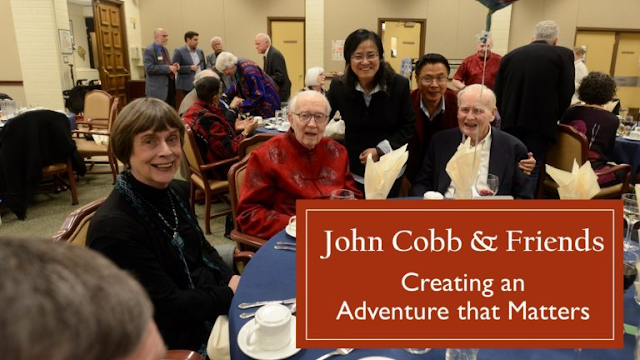Biography of John B. Cobb, Jr.
A Note to My Most Recent Friend
and Mentor, Dr. John Cobb, Jr.
whom I've met through his writings, speaking events,
and friends, but never in person...
As a former fundamentalist Baptist and Reformed evangelical who spent many a year knocking on community doors, speaking with families in their living rooms, developing children and youth neighborhood ministries. Who served in a variety of community ministries including lay teaching, lay pastoring, choir ministries - including area concerts; served as a camp counselor to high school students, and later, as lay pastor-teacher to college, career, and young adult ministries. Who served in family and adult ministries, church visitations, campus evangelism, lay counseling, money and life management counseling, and on congregational board and committee assignments, including church-wide special congregational ministries like developing grass roots assimilation programs without paid staff; Sunday School development projects; the creation of Easter Sedar's, Holiday Christmas Concerts, and etc, and etc. While also not forgetting lengthy personal training through the Sunday Schools, an undergraduate education from a small, private Baptist College including a 3 year Master's of Divinity from that same Baptist Seminary.
All of this I mention that I might say with the Apostle Paul, that I have some little background in the Christian faith - and, as my earlier Christian friends might say back a few years ago, though I doubt they would any more - "of the right kind," amongst themselves, though I myself, cannot now admit this statement of hubris. Yet the former Jewish Rabbi or Rabbis, the Apostle of Apostles, Paul flatly stated to all who would listen to him, that his theology required a completion in the person of Christ, the Messiah of Israel, and Savior of the world.
Old Wineskins Pass
And so, I wish to say similarly that the grand Christian tradition in which I was raised and taught now requires some bit of tweaking, if not a whole different foundation. One built on love and compassion. Which might embed itself into communities in healthy, holistic ways. One which would cease from its legalisms and dominionistic yearnings....
And sadly, to my general regret, I wish these thoughts might have come sooner to my heart than they did, though they did come through my own emergent Christian experiences over a twelve year period which were at once preceded by, and later, superseded by, a variety of forms of progressive Christianity (re: the old church term of "Chrisitan Humanism" where it at one time later became known as the social gospel, and now, today, as social justice).
Where I once shunned these works over faith perspectives I now embrace without lessening the importance of a salvific faith, but like the book of James, am adding with a lot of vigor the necessity of Jesus professing Christians to act Christianly to their families, friends, and community. Otherwise, it is a legalizing, militant faith of no worth no matter what it tells itself.
And so, after perhaps a thirty year period of deliberation between myself and God; with friends and family; and with parts of my Christian fellowship; I have come belatedly to a form of Jesus-based Process Christianity. Which is no less progressive in its faith as seen in its emergent or progressive elements but which is removing a poor philosophical metaphysic for a much broader, more organic kind. One which I will try to explain.
New Wineskins Arise
Firstly, let me say that Dr. Cobb is coming from a Methodist background, born into a family serving the Lord as missionaries in Japan. As he has come to know the Christian faith he has altered it a bit based upon a number of good reasons he believes is more helpful than the choices he was presented. These will be observed as he speaks. And though I differ on some theological points I can still use his thoughts to address my faith in its overall substance and outreach.
But for myself, and for the kind of Process Christianity I am espousing, I have not, and do not intend to lessen the Godhead of Father, Son, and Spirit, nor their deity, nor the efficacy of the atoning work of the virgin born Jesus who was resurrected from the dead and serves the Father now.
But what I wish to convey through readings in John Cobb and my developing forms of post-evangelical, Reformed and Reforming, process theology is not the banishment of Christology but its enhancement by doing away with some of the unhelpful measures of traditional theological creeds, statements, and dogmas which reduce God, the Godhead, the presence of the ministry of the Spirit in the world, or the quality of redemption provided to us in Christ Jesus because of those theological statements of generations past expressed in non-processual belief.
So as you listen to Dr. Cobb do listen broadly to determine with me how Whitehead's process philosophy might be interpreted Christianly when approaching a God of Love rather than as we have consigning God to the churchly roles of wrath and condemnation. I wish to develop with you, church theologies centered all the time, 100%, in the Love of God as shown to us by Jesus, who was, and is, fully God and fully human, to no lessening of either of his cosmic or earthly ontology.
A Short History of Wineskins
Too, having emerged from whatever form of emergent/progressive Christianity I was a part of during the latter part of my life I will state for the record that my course now is laid in towards a post-evangelical form utilizing process philosophy and theology to better inform my faith than had Protestant Greek Hellenism, Catholic Scholasticism, pre-scientific Enlightenment thought, or this past Modernistic era of the 1800s forward that we, as the people of God, have come through.
What this means is that I have gone through a deeply significant evolution of my faith during mid-life which came too late, having begun more formally in my early fifties. One whereby I began to deconstruct and reconstruct all previous modernistic statements about the bible and Godhead, its related beliefs and theological statements, and personal life investments about a God Who has more recently directed my final ministries and teachings along a path of love, Jesus-based practices, and with much less condemnation and judgment upon the world at large.
Although I cannot say the same myself about my straying brethren who are spiritually stuck in their lives in many ways as I was. But again, if prophecy is a transitioning gift between the Testaments, as I believe it is, a prophet's job is one of pronouncement to the works and attitudes of the Spirit of God present with us to direct minds and hearts back to God Himself.
Moreover, love doesn't come easy to me... as I suspect it doesn't for many. As a good Baptist and conservative fundamentalist later to become a conservative evangelic, I learned to expand my religious culture by learned habits of comparing my faith to that of others. One which I think is necessary, but which requires a lot more levity, understanding, and compassion than how I was taught. I might also blame a competitive upbringing, a lot of verbal abuse, and a public identity of feeling unworthy of love, but those are really my own issues to deal with against a past which in Jesus, and by the power of the Spirit, I may put away in the Cross of Christ.
If now this habit of condemning and judging persists in me, it does so not towards the non-Christian but more directly in my attitudes towards my own Christian faith as I appeal to healthier forms of expression against its legalisms, Pharisaical attitudes, systematic racisms, and militant violence. For myself, a Jesus-based Process Christianity is helping me, by the Spirit of Christ, to re-embrace the world and become a healthy part of living within it; one seeking quieter forms of ministry and service when speaking to Christ rather than settling to wait for heaven while participating in exclusionary practices of uncivil, inhumanitarian fellowship.
Putting Away Childish Things
Lastly, I should note that having removed my Calvinistic background in favor of Arminianism (sic, Wesleyanism without its "positional loss of salvation" mind you), and having developed that aspect of a "non-controlling God including a freewill theology" I have consequently moved into Arminianism's more contemporary forms of open and relational theology. And having struggled to reimagine my Calvinistic faith with Calvinism, I have steadily been progressing towards a processual form of all my past training, beliefs, practices, and education. Hence, I am writing of an Open and Relational PROCESS Theology. Once which is a part of the overall picture of Process Christianity. One which has as its hermeneutical center:
- God's Love
- Of reading a bible which not woodenly literal
- placing Jesus, God's Son, at its center as prime exhibitor of the God who loves
- and, re-interpreting evangelical theology into generatively healing forms of post-evangelic, process theology
This means that our Westernized Christian philosophically-based theologies based on Platonism, Scholasticism, Enlightenment, and Modernity must be written away from these forms too read the Author of the bible in terms of love rather than in terms of not loving. Hence, I am methodically removing these unhelpful attitudes of God and God's loving sovereignty in the world towards a Whiteheadian form of Process Philosophy being exhibited now in its fourth generation of interpretive effort (sic, Thomas Oord, Bruce Epperly, Jay McDaniel, Tripp Fuller, perhaps Peter Enns as he, like myself, are coming to understand what a Process Theology and Christianity might mean). Which also means that as Dr. John Cobb, who is now 97, but in the videos below was speaking at the ripe old age of 95 as a second generation of Whiteheadian/Hartshornian process theologian, is finishing up a lifetime of process studies in his Christian faith. And as he does its very process is being extended in every way imaginable including science and ecological societies.
Lastl, like Dr. Cobb, there are many who are developing a wide variety of process-based global religious and Christian beliefs which are forming a common basis with one another to speak to life differently than modernity has been these past several hundred years. Processual faiths which are based upon their temporal, geographical and cultural-religious settings. For myself, it is Christ and how Christ's love can be meaningful to the world around me. To others, it may be as guidance to a more loving Islamic or Hindu or Christian faith. Process Philosophy can do that as an Integral Theory. And should it continue to hold to its center of love I believe there is a lot which a process form of living might do in helping develop futuristic ecological civilizations learning to lean into one another, listening, serving, and helping one another when replacing militant violence with healthier forms of socio-politico and economic religious-cultural discussions.
All for now,
R.E. Slater
September 7, 2022
* * * * * *
CLAREMONT UNITED CHURCH OF CHRIST
The Cobb Institute by John B. Cobb, Jr.
May 22, 2022
John B. Cobb, Jr. taught theology at the Claremont School of Theology from 1958 to 1990. He is the author of more than fifty books. In retirement he lives at Pilgrim Place in Claremont. In 1973, with David Griffin, he established the Center for Process Studies. Throughout his career he has contributed to Whitehead scholarship and promoted process-relational programs and organizations. In recent years he has given special attention to supporting work toward the goal of China to become an ecological civilization. He led the effort to found the Claremont Institute for Process Studies in early 2019, and the organization was renamed in his honor one year later.The Cobb Institute promotes process and relational ways of understanding and living in the world, seeking to cultivate ecological civilizations through just and compassionate communities. Its vision is to advance wisdom, harmony, and the common good through holistic education, community building, and spiritual exploration.
* * * * * *
John B. Cobb, Jr. – A Journey of Faith in Process
Jul 5, 2020
No, the Bible is not an infallible book of rules; but, yes, it can guide a life. No, God is not an all-controlling power; but, yes, God is a companion to the world’s joys and sufferings, and an indwelling lure to radical love. No, Jesus is not a man to be worshipped as an infallible deity; but, yes, he is a savior for the world, in whose compassionate way of living we can share, and who appeared after his death to his disciples, giving hope for all. These are among the ideas we hear from John B. Cobb, an American theologian, philosopher, and environmentalist, known as the preeminent proponent of process philosophy and theology. In this Conversation in Process, John Cobb, age 95, shares his journey in faith with Jay McDaniel and, along the way, reveals a poignant life in process.
* * * * * *
Hosted by Jay McDaniel, Conversations in Process aims to understand and explore a process outlook on life, with its emphasis on inter-becoming; the intrinsic value of all life; the presence of fresh possibilities; and the need create communities that are creative, compassionate, diverse, inclusive, and participatory; humane to animals, and good for the earth, with no one left behind.
We also aim to learn from people that practice what we call the process way, even if they’re not especially interested in the process outlook. One of the practices of the process way is to listen; it’s to learn from people; it’s to be humble in the presence of others, and realize they may have wisdom we lack. So in these conversations we’ll be talking to some people who know a lot about the process outlook, and some who know very little, but who practice in ways that we want to learn from.
* * * * * *
About the Institute
Named in honor of our founder John Cobb, the Cobb Institute is inspired by the knowledge that all life is interconnected and in process of becoming. With this comprehensive vision, we engage in initiatives that foster the flourishing of individuals, communities, and our common home—the planet we all inhabit. We thus seek to advance ways of understanding and living that embrace this view in order to bring about fundamental transformations.
As a philosophical outlook, process-relational thought provides a holistic perspective on our place in the world, and invites us to attune ourselves to more integral modes of being. We live out this philosophy by providing values-driven education, engaging in creative collaboration, and promoting an open view of spirituality to help each other and our communities thrive. This is a bold collaborative endeavor that recognizes our interbecoming and interdependence, and thus emphasizes that we have a responsibility to care, not just for our own lives but also for the world we share with everyone and everything else.
Our Mission
The Cobb Institute promotes process and relational ways of understanding and living in the world, seeking to cultivate ecological civilizations through just and compassionate communities.
Our Vision
Our vision is to advance wisdom, harmony, and the common good through holistic education, community building, and spiritual exploration. We work toward transformations:
- from a world of static objects to a process of dynamic becoming;
- from a fragmented world to a relational world;
- from a human-centered world to an eco-centered world;
- from isolated communities to communities of communities;
- from oppressive social orders to a world of justice;
- from mutual defensiveness to mutual support;
- from the goal of wealth to the goal of happiness and wellbeing;
- from isolated individuals to persons-in-community;
- from knowledge as mere data to knowledge as wisdom nourished by multiple ways of knowing;
- from the primacy of analysis to the primacy of creative synthesis;
- from attachment to dogmatic ideologies to openness to evidence;
- from life-denying spiritualities to life-affirming spiritualities.
- from nature as mechanistic to nature as alive;
- from coercive power to the power of love.
* * * * * *
 |
| https://cobb.institute/spiritual-integration/ |
Fostering Spiritual Vitality
Fostering spiritual vitality encompasses our efforts in spiritual exploration and the arts. Through spiritual integration we explore diverse possibilities for embodied wisdom and emotional intelligence in daily life, as responsive to a healing spirit at work in the world. We seek to learn from and offer resources for multiple faith communities, to honor many different ways of wisdom, and to welcome both traditional and novel expressions of spirituality.
Art comes in many forms. Visual art is just one creative expression. The universe itself, as Whitehead says, is an expression of the "creative advance into novelty." Every moment in a person's life is thus an act of improvisation, a moment in which something new is created out of a settled past.
* * * * * *
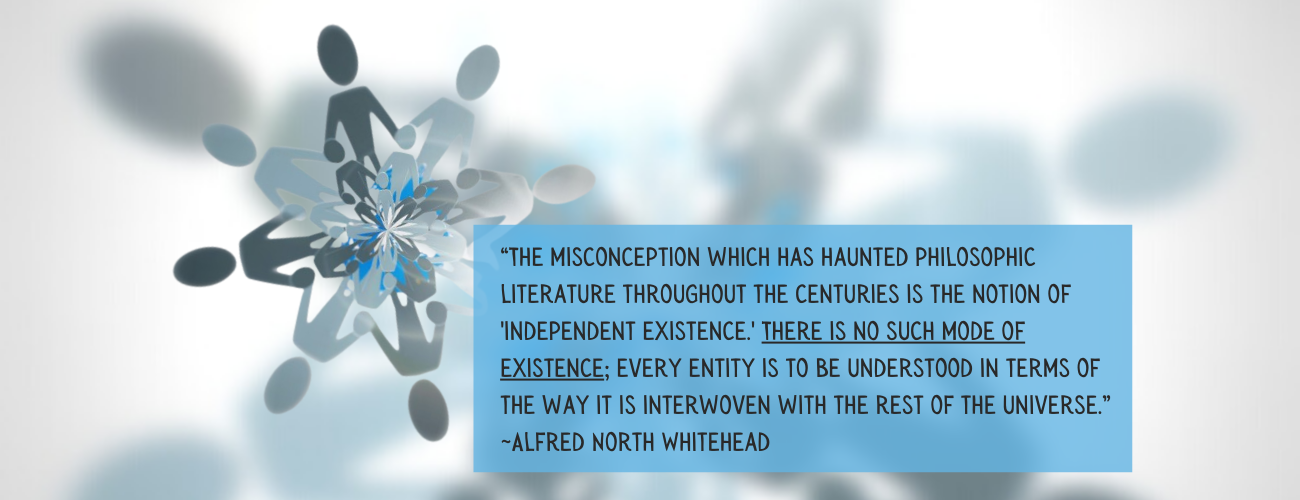 |
| https://cobb.institute/community-collaboration/ |
Promoting Heathy Communities
We promote healthy communities through strategic collaborations that will locally manifest ecological civilization. We work to convene, connect, and catalyze: convening important conversations, connecting synergistic partners, and catalyzing vital initiatives that will achieve the community’s goals in ways that increase its sustainability, resilience, and long-term well-being.
Our View
Promoting healthy communities puts process-relational philosophy into practice. Our view includes the following underlying principles:
- Reality is relational, that is, all things are interconnected.
- Everything in the world is constituted by its relationships to other things, and nothing exists in complete isolation.
- Because relationships form the core of reality, we seek to build healthy relationships, relationships that are mutually beneficial, relationships that seek balance, harmony, and synergy.
- Reality is valuable, that is, all things have intrinsic value. Everything possesses value in and for itself, and not just for others.
- Because all things have value, we affirm the equality of every person, work for just relationships between neighbors, and seek the inclusion and accommodation of all within communities as they grow together.
- Healthy communities are compassionate, diverse, and open to all, regardless of race, ethnicity, or economic status.
- Healthy communities recognize they are part of a larger world that matters, and that their actions have a real impact on the world, for better or worse.
- Healthy communities thus seek to bring about an ecological civilization.
- Promoting Healthy Communities - people - crop
Our Approach
Our approach seeks "creative localization," which is comprised of six dimensions:
- Energy: Generating power locally from renewable sources such as solar, wind, and hydrogen, and where possible, using technology created and stored locally.
- Food: Growing food locally or regionally using regenerative agriculture techniques that work cooperatively with nature and the Earth.
- Housing: Developing affordable housing in blended neighborhoods that encourage mutual support.
- Education: Engaging all individuals in a life-long process of discovery to contribute creatively and meaningfully to society with values rooted in humanity, community and ecology, and to live joyously in harmony with diversity.
- Culture: Developing a culture that values balance, sufficiency, human freedom and creative expression, rather than acquisition, consumption and servitude.
- Economics: Pursuing economic policies that maximize the well-being of all and the ecological sustainability of the planet.
What does the "process way" contribute to community work?
A holistic, systemic perspective: We encourage holistic, cross-disciplinary thinking about complex challenges.
A preference for transformational strategies: We stay alert to cues (or “lures”) from the environment for the best possible paths forward at any given moment to the most fulfilling future available. When our efforts align with the forces of nature, those forces begin to energize, sustain and open up pathways.
An inclination to collaborate: We search for synergies with our partners and magnify our impact by promoting the work of others.
* * * * * *
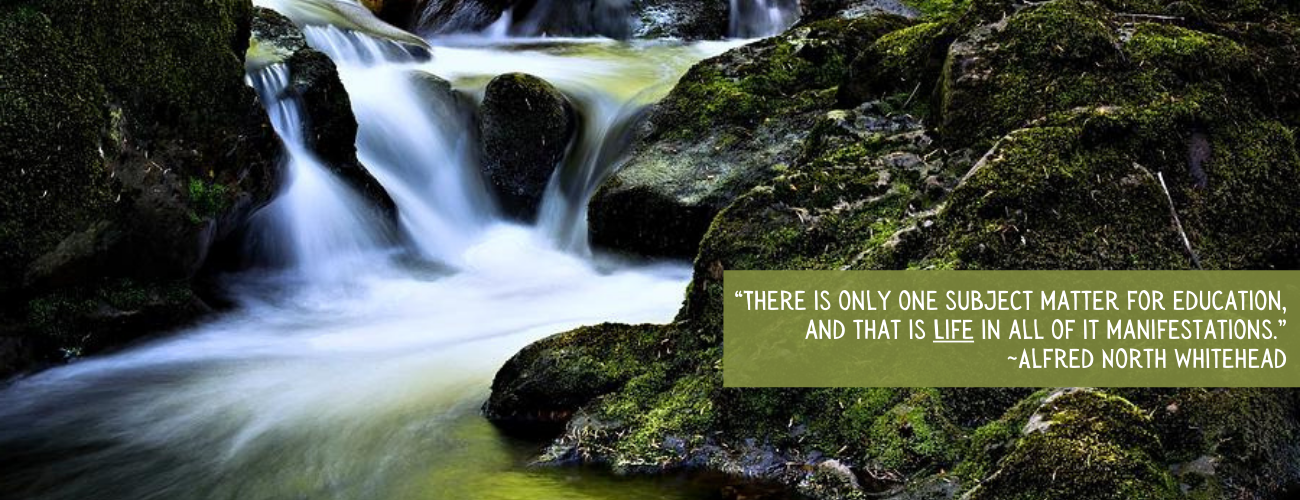 |
| https://cobb.institute/educational-development/ |
Advancing Educational Possibilities
Advancing educational possibilities encompasses our efforts in holistic education. Our desire is to provide educational offerings, experiences, and resources that are centered around process-relational philosophy. If we take seriously Whitehead’s challenge to make “life” the focal point of education, our work has a never-ending agenda: to gain wisdom and understanding in multiple facets of life, to enhance and deepen the rhythm of teaching and learning, and to integrate the various fields of inquiry in order to help solve the serious challenges facing humans and the world we live in. In short, our aim is to provide insights and participate in actions toward the goal of realizing an ecological civilization.
Our View
Learning is something that can take place in any setting at any age. Our philosophy of education includes the following underlying principles:
- All life deserves respect. Everything is connected; nothing in nature stands alone.
- Thinking and feeling are connected; mind and body are not separate entities; aesthetic wisdom and rational inquiry are complementary.
- There is a profound relationship between creativity, beauty, and life.
- Learning begins by experiencing the presence of the world and being affected by it.
- Happiness involves sharing experience with others and responding in harmony to these relationships.
- Harmony includes differences as well as similarities.
- Change is an ongoing component of reality; nothing ever stays the same. The process of reality is creative, emergent, evolutionary, and social.

Practices for all ages
With these fundamentals in mind, we seek to celebrate educational programs in which learning is an active process—a lifelong adventure of heart, mind and body.

Programs that begin in the romance of discovery and get certain basics right by...
- Creating a climate of care and respect.
- Helping students learn to cooperate and collaborate.
- Encouraging curiosity and playfulness.
- Exploring the wonder of glimpses of beauty.
- Engaging students in learning by doing.
- Experiencing the joy of genuine success.
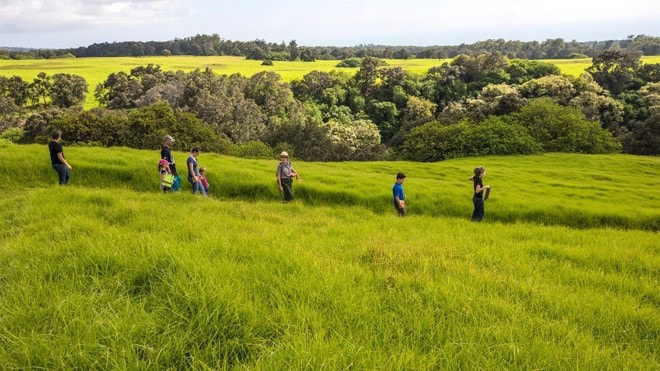
Programs that develop precision and mastery by...
- Investigating real-life projects.
- Integrating learning across disciplines.
- Inquiring in depth according the students’ interest and talents.
- Persisting in questioning and practicing.
- Encouraging problem finding as well as problem solving.
- Developing modes of artistic creativity.
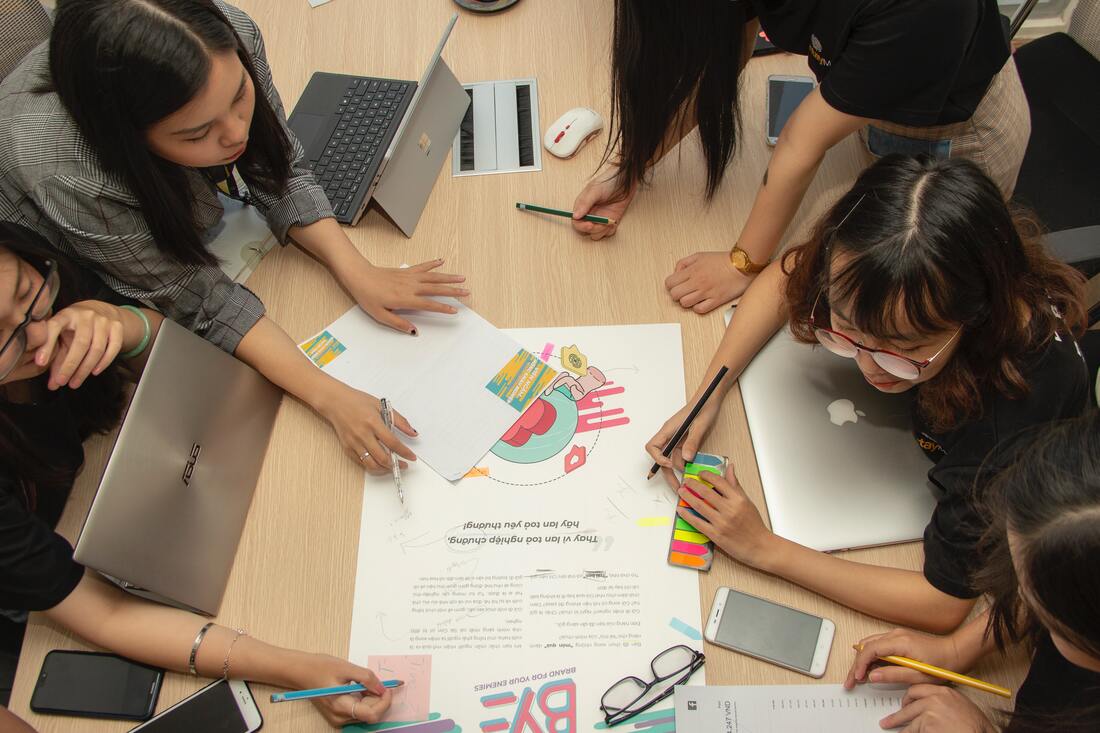
Programs that open out to make a positive difference in the world by...
- Educating for justice.
- Working toward ecological civilization.
- Facing challenges as opportunities.
- Seeking harmony of space, nature and spirit.
- Building consensus and community.
- Reaching out to different perspectives, backgrounds, and ages.
The principles and programs articulated above were authored by Lynn Sargent De Jonghe in an article entitled “Process Eduction” on Open Horizons.
Our Projects
To accomplish our objectives, the members of the educational development group participate in a wide variety of projects that fall under three main groupings:
Community Education
- Through its Learning Lab, the Institute provides a range of in-depth internet classes in process thought taught by Dr. John B. Cobb, Jr. and other experts, which reach hundreds of participants. The lab also facilitates smaller groups of learning circles, discussion groups, and book studies to explore a variety topics an interests.
- Middle Tree, a learning center located in Claremont, offers educational services and resources to students from elementary to high school students, provides a context for various members of the Institute to assist in student learning, and works with the Institute to develop curriculum for adult education. For example, we currently working with Middle Tree to develop programs that are designed to educate parents in the city of Pomona.
- For our own growth in understanding process philosophy, friends of the Cobb Institute sometimes participate in the study of major topics and themes. For example, Dr. Richard Livingston, the Director of Operations for the Cobb Institute and a scholar of process-relational thought, guided us through Robert Mesle's excellent introductory text, Process-Relational Philosophy: An Introduction to Alfred North Whitehead.
- “Backyard Becomings,” a small informal gathering of friends who meet regularly for an evening meal and discussion about process texts and themes, is another expression of our attempt to experience a sense of community, as well as to participate in an opportunity for personal growth in process thought.
Higher Education
- Guided by a process-relational view of education, and influenced by John Cobb's critique of “higher education,” members of our group challenge the assumption that developing value-free research experts in isolated fields is the ultimate goal of colleges and universities. Instead, we encourage students to become educated in transdisciplinary fields, with the intent of helping to solve the serious problems we face that threaten life as we now know it.
- A task force at the University of La Verne is in the process of establishing the Institute for the Common Good, as well as developing a new major in sustainability studies.
- We support the work of Flagstaff College, a small innovative school located in Flagstaff, Arizona, whose mission is to prepare students to be leaders in the democratic project of building sustainable, just, and beautiful communities and in creating ecological civilizations.
Spiritual Education
- The development of educational materials about various religious traditions is the goal of yet others in the group. These materials and experiences assist in deepening one’s own tradition, but also in developing respect for other religious and non-religious groups, and enhancing dialogue between various traditions.
Spanning across each of these three areas, another goal of some of our members is to develop a website for a Global Network of Ecological Education. Co-sponsored by the Institute for Postmodern Development of China, the website aims to provide information and ideas for those interested in ways to work toward an ecological civilization.
Our interests are thus multiple, and intertwine with the Institute’s other main areas of focus: spiritual integration and community collaboration. We invite friends and advisors to join us in pursuing the educational development goals named above, and to expand that list as we work toward realizing an ecological civilization.
